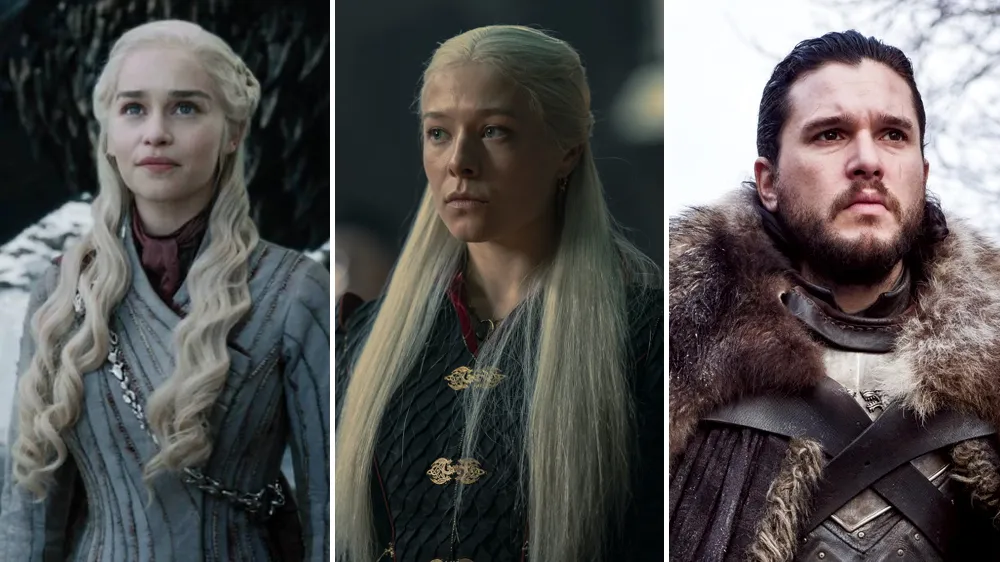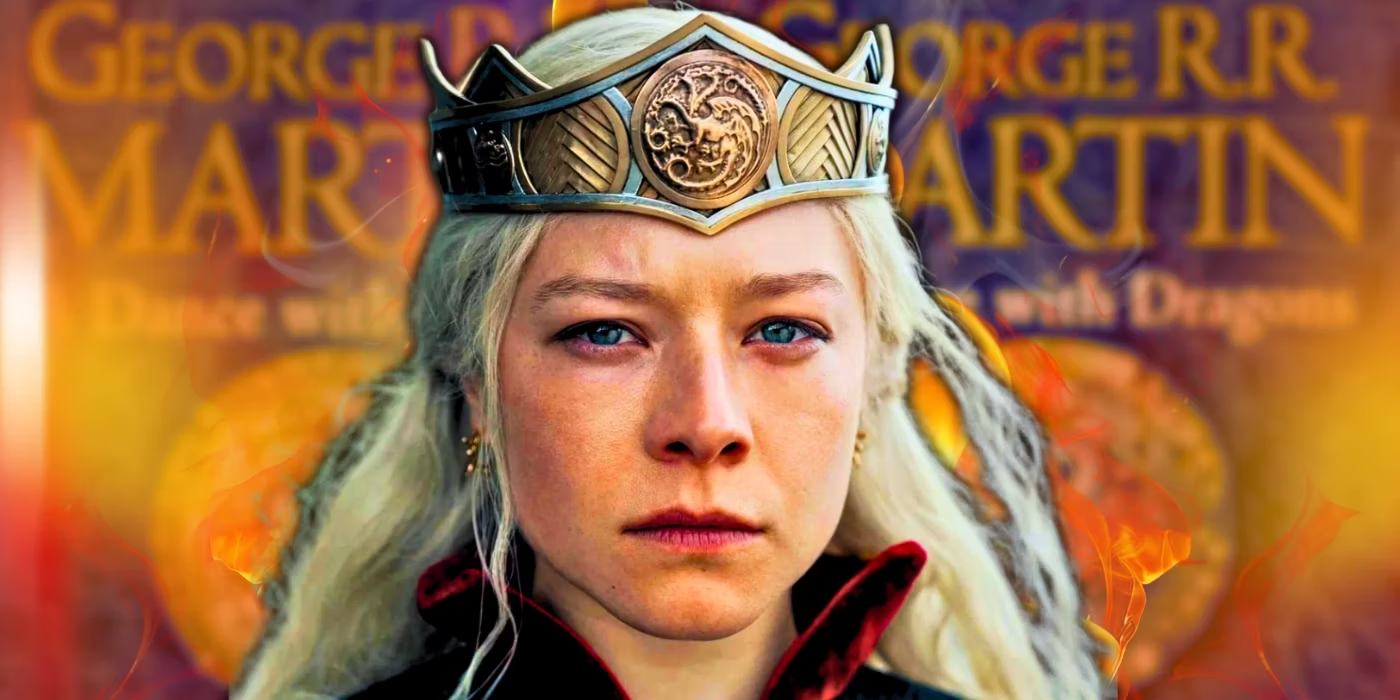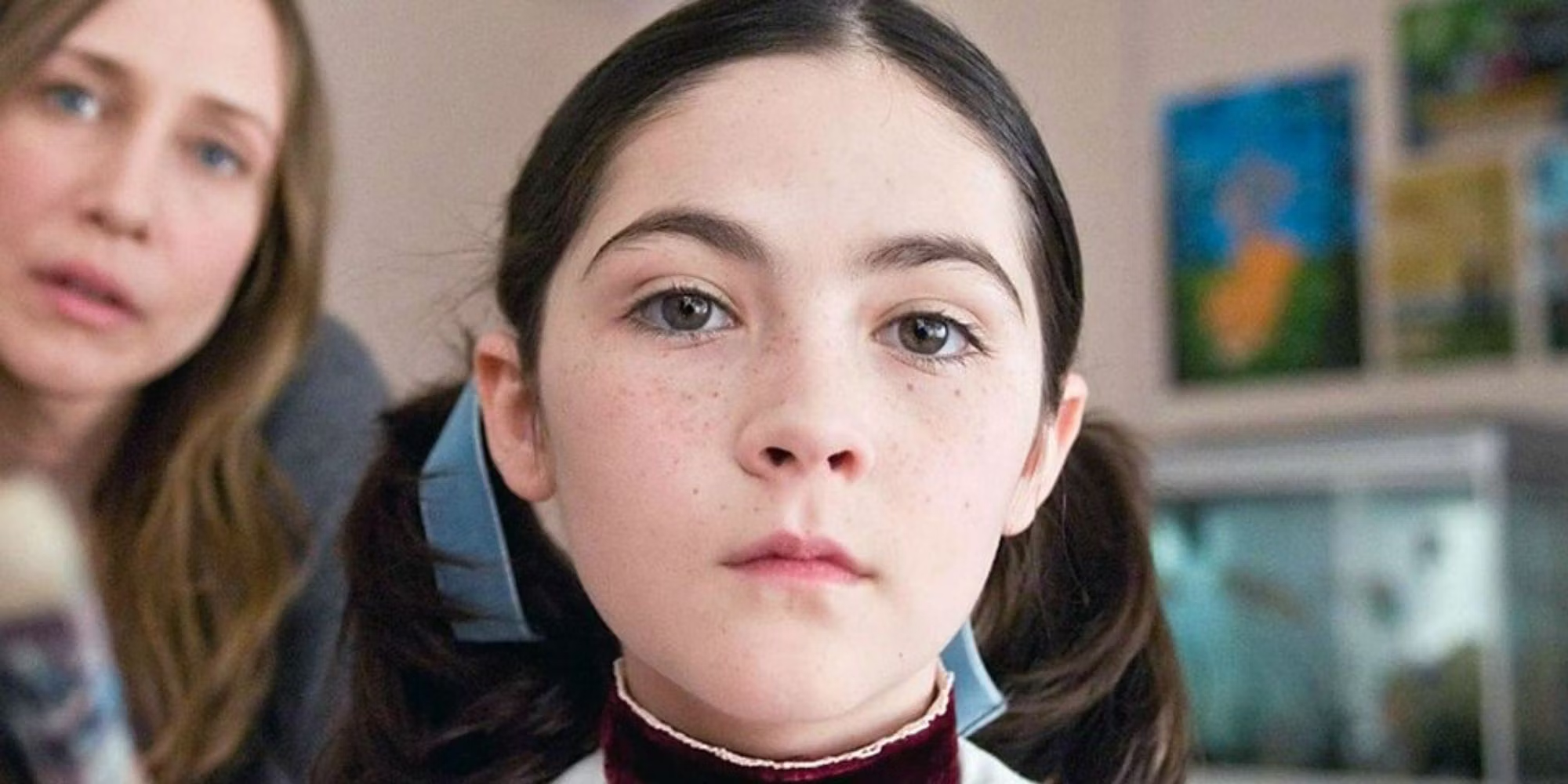A long-standing criticism of Game of Thrones has, unfortunately, had significant ramifications in House of the Dragon, since the franchise nitpick is largely to blame for the Dance of the Dragons. As House of the Dragon season 2 develops, both sides in the conflict have began to investigate the underlying reasons of the Dance. While Rhaenys claims that the true inciting event is no longer important because the realm would fight for their own reasons, such as the cause of the Battle of the Burning Mill, Rhaenyra is more concerned about whether her father picked Aegon to succeed her as heir on his deathbed.
Rhaenyra sneaks into King's Landing dressed as a septa to talk with Alicent face to face in the season 2 episode 3 finale of House of the Dragon. Rhaenyra questions Alicent about the dying Viserys' last comments after they both deny any participation in the killings of Princes Jaehaerys and Lucerys. Alicent claims that Viserys mentioned "Aegon" and the "Prince That Was Promised," which she misinterpreted to suggest that he intended their son Aegon to replace him on the Iron Throne. As the program admits, Alicent's motivation for seizing the throne from Rhaenyra was based on a perplexing feature that has often been criticized in the Game of Thrones franchise.
Game of Thrones' Families Constantly Using The Same Name Led To House Of The Dragon's War

After being a source of aggravation for viewers for well over a decade, the Targaryen family tree's habit of often recycling the name "Aegon" has come back to bite them. Aegon is the name of the Targaryen who conquered Westeros, and his nickname has been used by practically every succeeding Targaryen generation as an homage to the mighty, long-dead monarch. In House of the Dragon, the confusion of so many Aegon Targaryens has gotten so severe that a name mix-up sparked a full-fledged Targaryen civil war.
Rhaenyra has now informed Alicent that when Viserys said "Aegon" and the "Prince That Was Promised," he was referring to Aegon the Conqueror's dream from A Song of Ice and Fire, not his son.
Would The Dance of the Dragons have happened if Alicent's name hadn't been mixed up?
While it is almost humorously ironic that Alicent's reasoning for crowning Aegon is based on confusing his name with Aegon the Conqueror, this is not the only cause for the Dance of the Dragons. Alicent's assertion that Viserys wanted Aegon on the Iron Throne hastened Team Green's invasion of the throne by boasting a "legitimate" claim from Viserys himself, but the conflict is likely to have occurred otherwise. Otto had sown the seeds of usurpation since Aegon's birth, and the animosity between the Greens and Blacks for over two decades ensured that battle was certain following Viserys' death.
In reality, when Otto is fired as Aegon's Hand of the King in House of the Dragon season 2, Alicent's father hints that he never thought Viserys intended Aegon to be king. Because of Alicent's assertion regarding Viserys' dying remarks, Otto and the Green Council had less convincing to do with other noble houses, but he would have found reasons to discredit Rhaenyra's claim and seat Aegon nonetheless. Viserys' inability to end the Greens and Blacks feuds before the next Targaryen generation was born meant that war was unavoidable, regardless of Alicent's grievous blunder.
Despite the fact that this feature causes a horrific civil war, by the time the chronology reaches Jon Snow, aka Aegon VI Targaryen, there have been 12 known Aegon Targaryens in Game of Thrones history. It's evident that House Targaryen never learnt from Alicent's Aegon mix-up, which had such disastrous effects, but it's also plausible that neither Alicent nor Rhaenyra ever informed anybody the truth about her error. Despite her mistake in house of the dragon episodes, Alicent will be determined to defend her ego, while Rhaenyra will be forced to reveal the secret of Aegon's Song of Ice and Fire dream in order to explain Alicent's error.
Following Rhaenyra's son Aegon the Younger, the familial genealogy includes at least five more Aegon Targaryens, the last of whom is Jon Snow as Aegon VI Targaryen. Of course, Jon may always opt to start using his birth name when Game of Thrones ends, and if he does, he might subsequently father a baby named after none other than Aegon Targaryen. However, if there is one more wheel that the Targaryens should have broken in Game of Thrones, it is their preoccupation with the name Aegon. Since Jon Snow's Game of Thrones sequel program is no longer in production, whether another Aegon Targaryen is born may never be known.
Why does House Targaryen use the name "Aegon" so frequently in Game of Thrones history?

The basic explanation for why House Targaryen frequently chooses the name Aegon is that it is customary to name their offspring after mythical individuals from their bloodline. This isn't only a Targaryen custom; House Stark's family tree has numerous Rickons, House Lannister has a few Tyrions, and House Greyjoy has multiple Theons. The names that are frequently repeated are those that go back to a character of enormous influence and prominence in a house's history, with kings' names being the most common monikers passed down.
However, House Targaryen's usage of Aegon is significantly more common in their lineage than other Westerosi families' repeated names. This is because Aegon is a name linked with the family's greatest power, strength, and influence, as seen by the deeds of Aegon the Conqueror. Perhaps due to superstition, Targaryens named Aegon are supposed to have a particular level of power and might worthy of retaining the Conqueror's appellation, which is why so many monarchs name their firstborn sons Aegon. Furthermore, by handing down the name "Aegon," each new Westerosi generation is reminded of House Targaryen's conquest and might.
Given the backdrop of Aegon's A Song of Ice and Fire dream, there's another reason why his name is so frequently used. Aegon had a dream that a Targaryen on the Iron Throne would unite mankind against the dead and the cold deep in the North, but he didn't know if it would happen within his generation or after his death. With each Targaryen heir being taught about the dream and its significance, they were likely to assume that the name Aegon was essential to completing the prophesy.
The house of the dragon cast Viserys names his son Aegon, his successor Rhaenyra names her son Aegon, her son Viserys names his son Aegon, and so on. Several decades later, the Prince That Was Promised is revealed to be Aegon VI Targaryen in Game of Thrones, when Jon Snow fulfills Aegon's prophesy by uniting the realm against the White Walkers in order to rescue mankind. Though it is still debated whether Daenerys, Jon, or both are the Prince That Was Promised, it does not appear coincidence that the prophesy was partially fulfilled by a Targaryen wearing the Conqueror's name.











